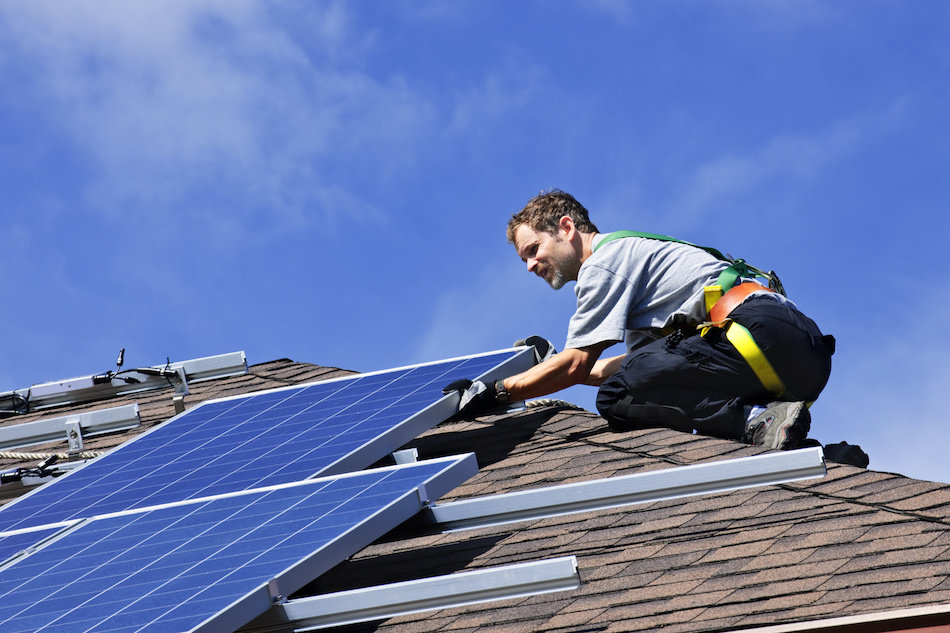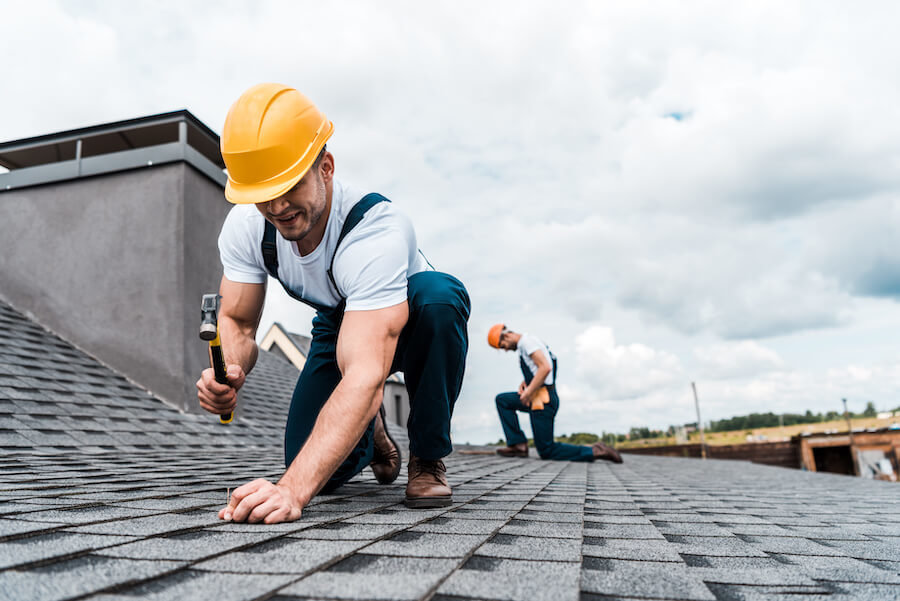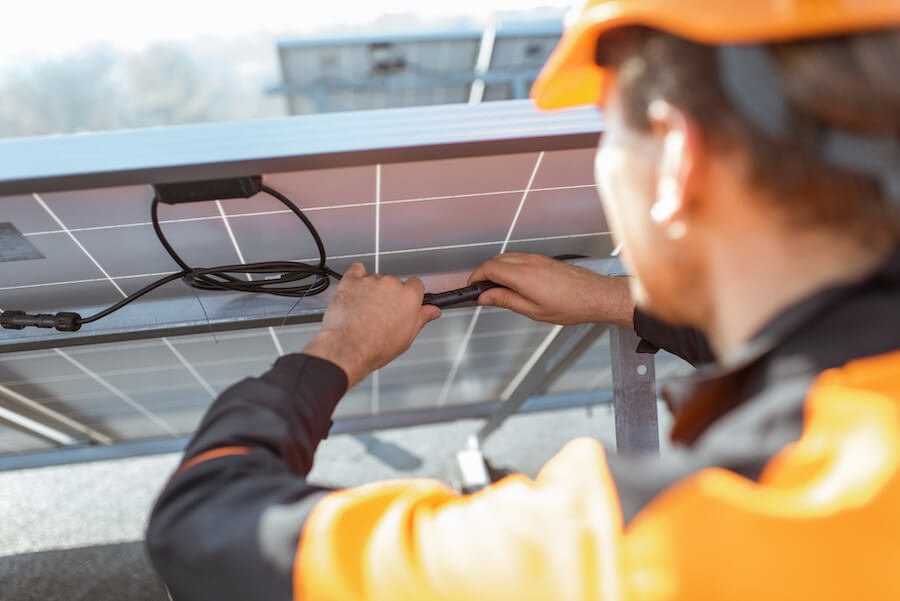Solar Panels For Homes: What You Need to Know About Going Solar
Posted by Justin Havre on Wednesday, August 24th, 2022 at 8:34am.
 Canadian homeowners are increasingly looking into clean energy to power their homes—and solar energy ticks that box as a good solution to save money, increase energy efficiency, and reduce your carbon footprint. Professionals can install panels on a rooftop or on a property to provide an additional source of power to a residence or replace more traditional forms of energy. Here are some things homeowners should know about solar energy in Canada.
Canadian homeowners are increasingly looking into clean energy to power their homes—and solar energy ticks that box as a good solution to save money, increase energy efficiency, and reduce your carbon footprint. Professionals can install panels on a rooftop or on a property to provide an additional source of power to a residence or replace more traditional forms of energy. Here are some things homeowners should know about solar energy in Canada.
How Do Solar Panels Work?
The process of converting sunlight into electricity is called photovoltaics, or PV for short. PV cells make up the main structure of the solar panel. Some light is absorbed when the sun shines on PV cells, creating electrons. These electrons flow through wires and create electrical currents.
The resulting solar energy can be used immediately, sent to a power grid, or stored for later use in solar batteries. Some homeowners install solar batteries as a backup power source in case of an outage or blackout. Others use solar batteries to store energy for use during evening hours or when the sun isn't shining.
There are three types of solar power systems to choose from:
Grid-connected Systems
Grid-connected systems are the most common type; they use a local utility company to provide power when the sun isn't shining. These systems are the most affordable option. They also require less maintenance than off-grid systems, and you don't have to worry about storing energy or running out of power. Additionally, grid-connected solar panels can help you save money on your utility bill.
Off-grid Systems
People use off-grid systems in remote areas without access to a utility grid. They are more expensive than grid-connected systems, but they offer several advantages. For one, off-grid systems allow you to generate your own power, which gives you control over your energy consumption. Since you aren't relying on the grid, you don't have to worry about outages or blackouts.
Hybrid Systems
Hybrid solar power systems are the best of both worlds. They offer the affordability and ease of use of grid-connected systems while also providing the independence and reliability of off-grid systems. Hybrid solar power systems are a good choice for homeowners who want to be energy independent but don't want to sacrifice the convenience of grid connectivity.
Do You Need to Live in a Sunny Climate?
A house doesn't need nonstop direct sunlight to benefit from solar energy. However, the roof needs a good amount of southern exposure—ideally, your roof should face south. A south-facing roof allows the panels to receive the most direct sunlight possible, which is necessary for them to generate the most electricity.
If your roof doesn't face south, consider how much sunlight your home receives daily. Most solar panels need around five hours of direct sunlight per day to generate the maximum amount of electricity, although some panels may work with as little as three hours of sunlight per day. You will likely need to install more panels if you live in a particularly cloudy area.
Is Your Roof Suitable for Solar?

You'll need to take into account several factors when deciding if your roof can withstand a solar power system. A solar panel typically weighs about 23 kilograms. Your roof will have to hold the collective weight of each solar panel, but remember that the weight may vary based on the type of panel chosen and how many panels are in your system.
A roof should have a slope between 30 and 45 degrees for optimal solar exposure. Canadian homeowners can take advantage of a free home assessment to determine whether or not their roof receives a sufficient level of solar exposure.
Consider the age of the roof and any potential problems it may have. Inspecting and repairing your roof before solar installation can save you a major headache later, since the roof will need to hold up for the solar power system's entire lifespan.
How Long Do Solar Panels Last?
Solar panels have a lifespan of around 25 to 30 years, but they may last longer if they are well-maintained. Wash them at least twice a year and regularly check the connections between the panels and the inverter. Degradation is a natural process that causes solar panels to lose their power output over time. However, after 20 years, your panels should still work at about 90% of their original output.
Solar panels can become damaged in several ways. Debris like fallen tree branches or snow can cause scratches and add extra weight to panels. If you leave snow on the panels, it can freeze and cause microcracks.
Most people agree that solar panels are not expensive to maintain unless you overlook small maintenance tasks. Keeping a close eye on your system is beneficial to ensure everything is working correctly.
Do You Need to Reduce Your Energy Use?
When it comes to solar panels, you don't just need to worry about the upfront cost. You should also consider how to reduce your energy consumption to make the solar panels effective.
An energy audit is a great way to start being more energy-efficient. During the audit, an expert will come to your home and evaluate your energy use in all areas. They'll give you specific recommendations for upgrades that can save you energy and money.
Some common energy-efficient upgrades include installing a programmable thermostat, adding insulation to your home, and replacing your light bulbs with LEDs. Additionally, switching to EnergyStar® appliances can help save energy and money.
Watch out for vampire appliances, electronics that continue to draw power from the wall even when turned off. Cable boxes, DVD players, and printers are all common examples of vampire appliances. They can use up to 10% of your home's total energy consumption, so make sure to unplug them when they're not in use.
What Does the Installation Process Look Like?

Installation of solar panels usually requires a professional. The installation process usually includes the following steps:
- Make sure the roof is in good condition and can support the additional weight of the solar panels.
- Install the mounting rails, which hold the solar panels in place.
- Connect the panels need to an inverter, which converts the DC power generated by the panels into usable AC power.
- Inspect the system and add any final touches, like attaching labels to the inverter or installing a weatherproof cover over the system.
The cost of installing a solar panel system can vary depending on several factors, such as the size of your system, the type of materials used, and whether or not you do some of the work yourself. Generally, you can expect to pay between $10,000 and $35,000 for a complete solar panel installation.
Will Solar Panels Change the Aesthetic of the Home?
Installation of solar panels does not typically require any changes to the aesthetics of your home. The solar panels are usually attached to the roof; because they are flat, they do not take up much space and are not very noticeable. The wiring and connection of the solar panels are also hidden from view.
Many homeowners opt for building integrated photovoltaic (BIPV) systems, which combine PV cells with roofing materials to create a seamless look. BIPV systems are available in two different forms: solar shingles and photovoltaic slates. They are a great option for homeowners looking for an attractive and efficient way to go solar.
What is the ROI for Solar Panels?
The return on investment for solar panels can vary depending on the size of your system, the type of materials used, and whether or not you do some of the work yourself.
Homeowners can expect to save around $1,400 per year on electric bills. Typically, savings from solar power take ten years to cover initial costs. If a homeowner decides to sell the home while the panels are still active and in good condition, having those solar panels can increase a home's value.
As a bonus, federal and provincial tax credits are available to homeowners who install a solar panel system. Many provinces and territories have net metering programs that allow you to sell excess energy back to the grid. There are also a number of other incentives available for solar panel systems, such as rebates from your utility company, grants from local governments, and discounts from solar panel manufacturers.
Going Solar is Great For You and the Planet
Installing solar panels can be a great investment. Not only will you be doing your part to help the environment, but you'll also see a nice return on your investment in terms of lower energy bills and possibly even government incentives. If you're thinking of going solar, we hope this article has answered some of your questions and given you a better idea of what to expect during the installation process.
